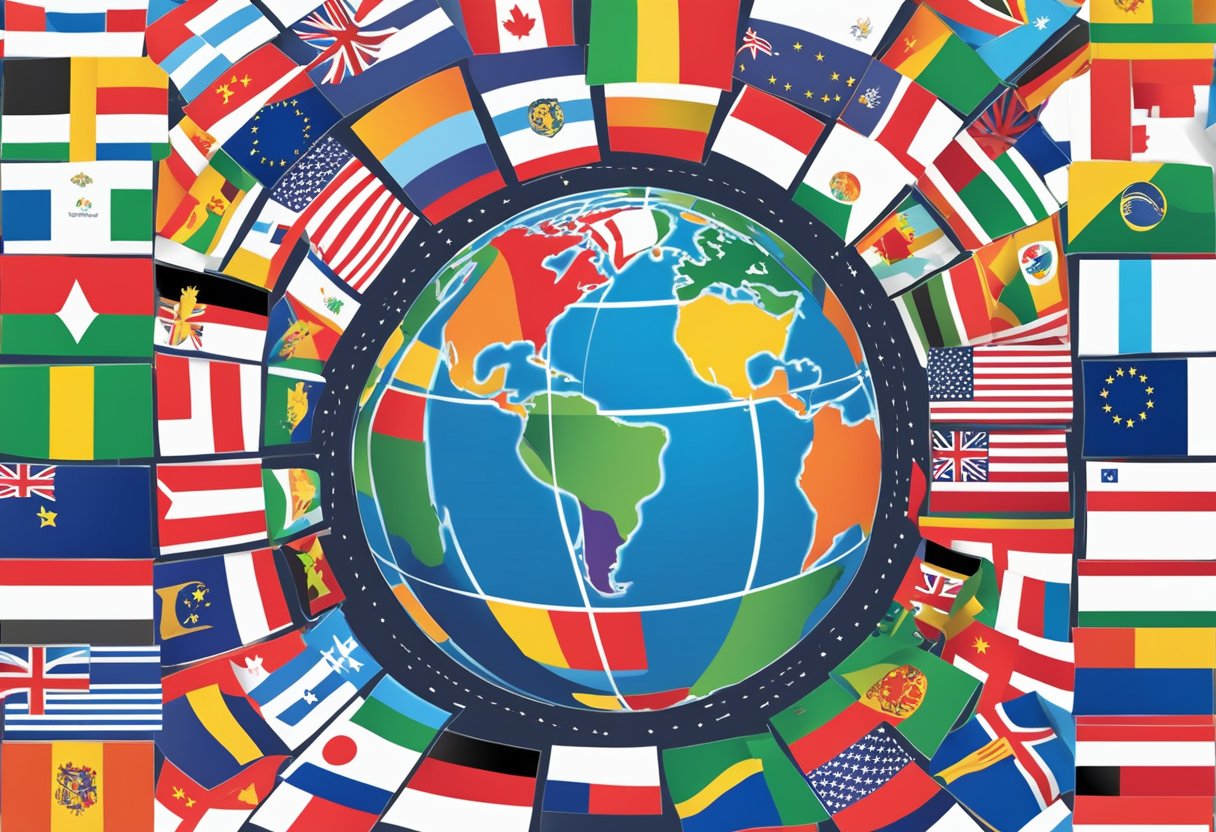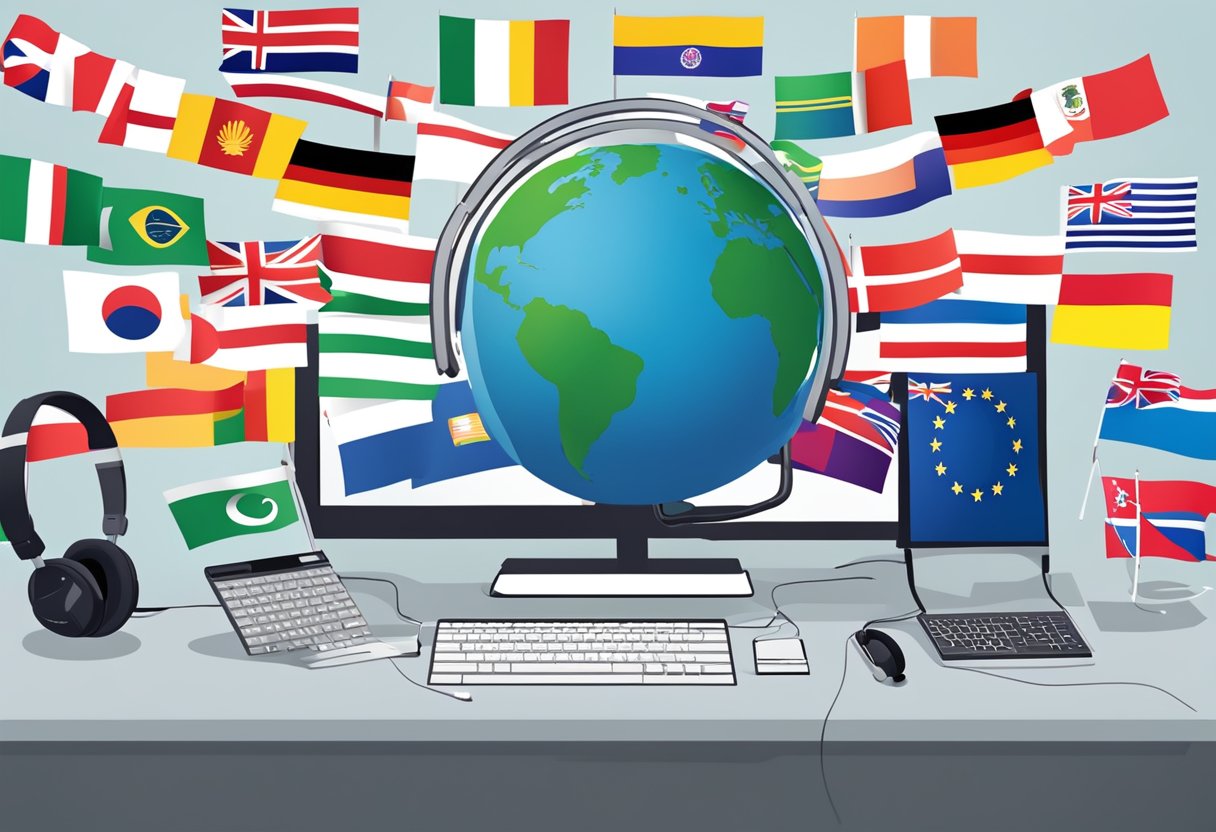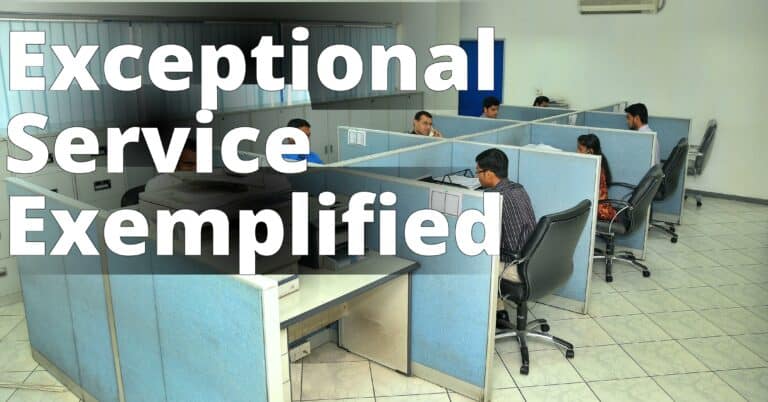International Customer Service Standards: Elevating Global Support
Establishing consistent and high-quality customer service is critical for businesses operating in the global market. The International Customer Service Standard (ICSS) is a framework designed to help organizations meet and exceed customer expectations no matter where they are in the world. With a focus on universal principles such as responsiveness, transparency, and professionalism, these standards provide a benchmark for companies striving to deliver exceptional service.

In the world of customer service, meeting international standards is not just about adhering to regulations; it’s about building trust and loyalty with customers from diverse backgrounds. It’s about ensuring that service excellence is embedded in the culture of an organization, transcending geographical and cultural barriers. As businesses seek to expand their reach and tap into new markets, adherence to an International Customer Service Standard can be the differentiator that sets them apart from competitors.
Understanding International Customer Service Standards

Navigating the world of customer service can be complex, but International Customer Service Standards (ICSS) provide a roadmap for excellence in service across borders. These standards offer a unified framework to ensure consistent quality and effectiveness in customer interactions worldwide.
Historical Context of ICSS
The International Customer Service Standard (ICSS) was established with a global mindset. Rooted in the balanced scorecard methodology, ICSS first took shape in 1997. It was created to help organizations worldwide measure and improve their customer service practices. As an initiative of the International Council of Customer Service Organisations (ICCSO), it provides an accredited benchmark that transcends local practices and tailors customer service globally to a high and measurable standard.
Key Principles and Terminology
ICSS is built on foundational principles which dictate how organizations should interact with their customers. Principles of transparency, accountability, and continuous improvement are key to the standard. The terminology within ICSS, such as “service excellence” and “customer engagement,” represents the core concepts necessary for an organization to evaluate and enhance its customer service operations.
To dive into the principles further, they include:
- Customer Focus: Prioritizing the needs and expectations of the customer.
- Integrity: Upholding trustworthiness and honesty in all customer interactions.
- Respect: Treating every customer with dignity and understanding.
- Transparency: Being clear and open about processes and outcomes.
With these principles, the ICSS aims to foster an environment where customer service transcends cultural and geographic boundaries, setting a global benchmark for quality and satisfaction. They are detailed in documents published by ICCSO and are vital for any organization looking to benchmark its service against international expectations.
Organizational Impact

International Customer Service Standards deeply influence how organizations develop their strategies and obtain a competitive edge. These standards can lead to improved financial outcomes and are a driving force for cultural change within businesses.
Influencing Business Strategy
Organizations use the International Customer Service Standard (ICSS) as a cornerstone to shape their overarching business strategy. They integrate customer service excellence into their strategic planning, ensuring it aligns with core objectives and mission statements. The aim is to create a consistent experience that meets the demands of the global market.
Financial and Competitive Advantages
Adherence to high customer service standards can be financially rewarding. Businesses that prioritize customer service often enjoy increased customer loyalty and a positive brand reputation, leading to potential market share growth. By implementing standards such as ISO 23592, companies differentiate themselves from competitors, using service quality as a lever for financial performance.
Service Excellence as Cultural Change
Cultivating a culture that embodies service excellence is not just about following procedures; it’s a shift in the organizational mindset. Studies have shown that factors like organizational culture influence the effectiveness of customer service. When service excellence becomes ingrained in a company’s culture, it directly contributes to sustained improvements in client satisfaction and loyalty.
Standards and Governance

Effective customer service is essential, and the integration of International Standards helps pave the way for consistency and excellence. Governance plays a crucial role in overseeing these standards, ensuring they’re not just adopted but are also effective in day-to-day operations.
Role of Governance in Customer Service
Governance in customer service is like a compass that guides a ship; it provides direction and ensures that policies and procedures align with the organization’s mission. They are accountable for the implementation and continuous refinement of customer service strategies, making sure they meet both the International Customer Service Standard (ICSS) and the expectations of consumers around the globe.
Adoption of International Standards
Adopting international standards is not a check-the-box exercise. It’s a thoughtful process that involves adapting practices to ensure they meet global benchmarks like those outlined by the International Organization for Standardization (ISO). From this, organizations drive towards service excellence, influence their customer service delivery positively, and align with recognized principles and models to achieve outstanding customer experiences internationally.
Evaluation and Certification Processes
Certification in International Customer Service Standards offers a clear benchmark for organizations to attain and showcase their commitment to service excellence. This process is not just a one-time assessment but an ongoing endeavor to maintain and improve service quality.
Importance of Certification
Certification is vital for organizations because it validates their dedication to delivering exemplary customer service. It acts as a strategic tool that signals to consumers and competitors alike that the organization adheres to the highest service standards. Being certified can enhance reputation, drive continuous improvement, and open the door to new business opportunities.
Certification Bodies and Accreditation
Organizations that seek certification will go through a process administered by recognized certification bodies. These entities are themselves accredited by relevant authorities to ensure they operate against a backdrop of integrity and competence. They evaluate an organization’s customer service against specific criteria, such as the International Customer Service Standard or the recently established ISO standards for service excellence.
Upon successful evaluation, organizations are awarded a certification which they can use to reinforce their commitment to quality customer service delivery. This certification process is an important way for organizations to demonstrate that they not just meet, but consistently exceed customer service expectations.
Setting the Global Benchmark

International customer service standards serve as benchmarks that organizations strive to meet or exceed in delivering consistent, high-quality service across the globe. They ensure a level playing field and set clear expectations for both businesses and consumers.
Examples of Service Standards
International customer service standards encompass a variety of benchmarks. For instance, response time to customer inquiries and the consistency of service delivered are two critical aspects. Other standards include customer satisfaction ratings and complaint resolution effectiveness. Some standards are industry-specific, while others apply regardless of the sector, aiming to foster reliability and trust in customer interactions.
The Role of ICCSO and CSIA
The International Council of Customer Service Organizations (ICCSO) plays a pivotal role in the establishment of global service standards. By bringing together service leaders from across the world, they work towards the development of the International Customer Service Standard (ICSS). In parallel, the Customer Service Institute of America (CSIA) applies these benchmarks within the United States to drive service excellence, adopting the balanced scorecard methodology for holistic evaluation. Together, ICCSO and CSIA promote superior service standards, advocating for the importance of customer-centric cultures within organizations internationally.
Focusing on the Customer Experience
In today’s customer-focused market, prioritizing the customer experience is crucial. It not only involves meeting but surpassing customer expectations to boost satisfaction.
Engaging with Consumer Expectations
Engaging with consumer expectations is about understanding and delivering what customers believe they should receive in interaction and service. When organizations align their operations with the International Customer Service Standard, they position themselves to accurately fulfill these expectations. An effective strategy includes:
- Personalized Communication: Addressing customers by name and recalling past interactions can make them feel valued.
- Prompt Responses: Utilization of tools like automated email replies and chat responses, as noted by HubSpot, helps maintain timely engagement.
Measuring Customer Satisfaction
The pulse of customer satisfaction lies in measuring how services match up to expectations. McKinsey suggests considering a customer’s end-to-end experience as a key indicator of their overall contentment. Organizations may use surveys or feedback mechanisms and look at metrics such as:
- Net Promoter Score (NPS): Gauging the likelihood of customers recommending the business.
- Customer Effort Score (CES): Evaluating how easy it is for customers to do business with an organization.
Operational Excellence and Quality
To excel in customer service, organizations must put in place effective processes that deliver consistently high-quality services. With the right processes, service excellence becomes an achievable goal, setting the bar for operational quality.
Developing Effective Processes
Organizations aiming for operational excellence start by mapping out their service processes in detail. These processes are then analyzed for efficiency—to ensure that they can reliably handle customer interactions without hiccups. It’s about getting things right from the start. Take the International Customer Service Standard, for instance, which has laid down a blueprint for organizations to achieve excellence.
| Steps to Develop Processes | Description |
|---|---|
| Identify Service Touchpoints | Pinpoint all customer interaction points. |
| Analyze Current Workflows | Critically assess how current services are delivered. |
| Implement Improvements | Make changes to streamline and enhance service delivery. |
Ensuring Quality and Consistency
Striving for quality and consistency in service delivery means checking and double-checking that every customer interaction meets a high standard. This isn’t just about meeting basic expectations but about pushing for that wow factor. The ISO 23592 outlines an excellent model, aiming not just for customer satisfaction, but for delight.
To guarantee consistency, they:
- Train their staff rigorously and regularly.
- Measure service delivery with meaningful metrics.
- Gather customer feedback to constantly refine the service experience.
Their end goal? A superb service experience every time.
Training & Professional Development

In the realm of customer service, continuous training and professional development are vital for maintaining high standards. They ensure that the workforce remains empowered and equipped with the latest skills, while individuals can attain certifications that validate their expertise.
Workforce Empowerment
Organizations thrive when they invest in training programs that enable their teams to deliver outstanding service. By embracing the principals set forth by the International Customer Service Standard, companies can ensure their training modules meet global excellence benchmarks. These programs often cover a broad range of topics from communication skills and problem-solving to advanced customer service strategies, ensuring employees are well-prepared to handle a diverse array of customer needs.
Certifications for Individuals
Personal growth in customer service is often marked by obtaining professional certifications. Such certifications not only bolster one’s resume but also reflect a commitment to industry standards and personal excellence. For example, the ICCSS provides accreditation of Customer Service and Customer Experience education programs, offering professional certification designations that are recognized globally. Individuals seeking to distinguish themselves in the field can pursue these certifications to demonstrate their capability and dedication to their profession.
Addressing Customer Complaints

When it comes to customer service, handling complaints effectively is crucial. It not only helps in resolving immediate issues but also serves as a stepping stone towards improving service standards.
Effective Complaints Handling
Proactive steps in complaints handling involve creating an environment that is receptive to feedback. The International Organization for Standardization (ISO) outlines a quality management approach that enhances customer satisfaction by addressing complaints efficiently. A structured process should be in place, which includes:
- Acknowledgment: Swiftly recognizing receipt of a complaint to assure the customer that their concern is being addressed.
- Investigation: Thoroughly examining the issue to understand the root causes.
- Resolution: Providing solutions that are fair to both the customer and the company.
- Follow-up: Checking in with the customer to ensure that they are satisfied with the resolution provided.
Training staff to handle complaints with empathy and professionalism is integral, and using automation tools can ensure customers receive timely responses.
Turning Complaints into Opportunities
Each customer complaint presents an opportunity for improvement. They provide invaluable insights into where a business’s products or services may be failing and how these issues can be rectified. The International Customer Service Standard (ICSS) emphasizes leveraging complaints to enhance the overall quality of customer service.
Businesses that do well often:
- Document and Analyze: They log every complaint and analyze patterns over time to spot recurring issues.
- Act on Feedback: They use the information gathered to make informed changes to their procedures or products.
- Communicate Changes: They keep their customers informed about how their feedback has led to tangible improvements.
By embracing complaints as a source of honest feedback, businesses can turn a potentially negative experience into a positive driver for change.
Celebrating Service Achievements

Recognizing outstanding performance in customer service is key to fostering service excellence and confidence within organizations. Awards play a crucial role in not just rewarding but also promoting a customer-focused approach in the international business sphere.
Overview of International Service Excellence Awards
The International Service Excellence Awards are a testament to the dedication exhibited by organizations and individuals who exceed in delivering customer satisfaction. These awards are closely aligned with the standards set by the International Customer Service Standard (ICSS), ensuring that recipients are truly representative of service excellence. The criteria for winning these awards reflect a commitment to not just meeting but exceeding customer expectations.
Promoting a Customer-Focused Approach
Encouraging a customer-focused approach is central to the ethos of the International Service Excellence Awards. Winners generally exhibit a strong alignment with the principles laid out by the ICSS framework, which is instrumental in steering organizations towards a culture of customer-centricity. By recognizing these accomplishments publicly, the awards instill a sense of pride and motivation among employees, while inspiring other companies to adopt similar standards in pursuit of service excellence.
Frequently Asked Questions

This section tackles common inquiries about international customer service standards, offering insights into benchmarks, trends, and practices essential for providing superior service globally.
What are the recognized global benchmarks for excellence in customer service?
The International Customer Service Standard (ICSS) serves as an approved benchmark for excellence. It reflects best practices and is accepted by numerous organizations worldwide.
How do the latest customer service standards differ from previous years?
Recent standards emphasize the integration of digital tools, customer feedback loops, and a greater focus on personalized service. They aim for a more efficient and responsive customer service experience.
What are the top characteristics of effective customer service according to international guidelines?
The hallmarks of effective customer service include, but are not limited to, responsiveness, clear communication, personalization, and efficiency. Organizations are urged to aim for these highest standards.
Can you highlight the key elements that make up the foundation of customer driven service standards?
Customer-driven standards revolve around understanding and meeting customer needs. They include listening to feedback, constant improvement, and designing services that deliver value.
What practices should businesses implement to meet or exceed global customer service standards?
Businesses should incorporate regular training, adopt customer feedback systems, use automation smartly, and ensure their team maintains a friendly and positive attitude. It’s crucial to stay positive during all customer interactions.
How are global customer service standards adapted to accommodate cultural differences?
Adaptation involves language support, understanding local customs, and being sensitive to cultural nuances in all customer interactions, ensuring inclusivity and respect across diverse customer bases.





